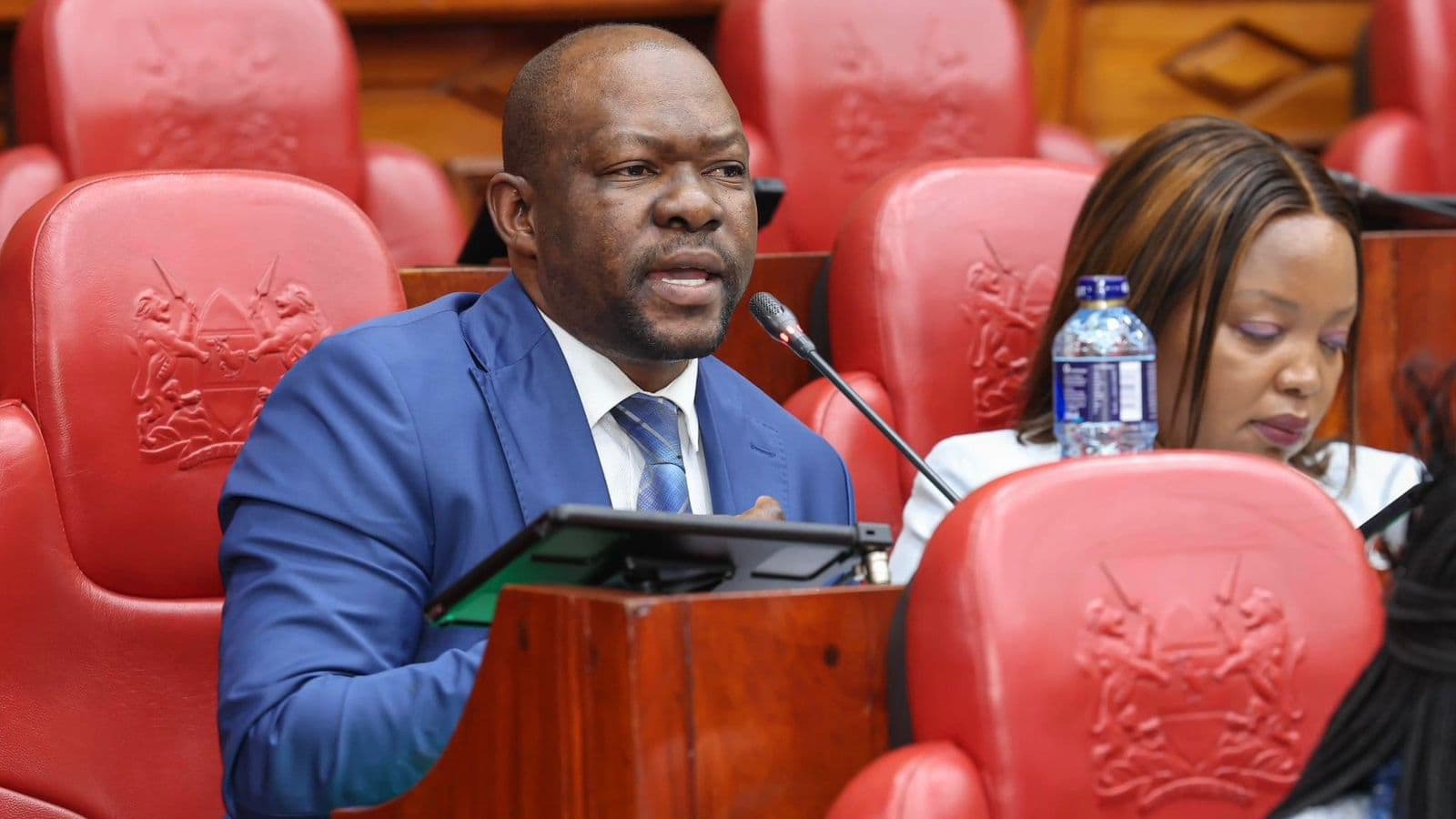We're loading the full news article for you. This includes the article content, images, author information, and related articles.
Following the death of veteran leader Raila Odinga, Saboti MP Caleb Amisi predicts a schism within the ODM party, exposing deep-seated divisions over its political direction and future leadership, a critical moment for Kenyan opposition politics.

NAIROBI, KENYA – In the wake of former Prime Minister Raila Odinga's death on Tuesday, October 15, 2025, the Orange Democratic Movement (ODM) is facing an existential crisis, with prominent party members now publicly warning of a potential fracture. Saboti Member of Parliament, Caleb Amisi, has become a vocal critic of the party's current trajectory, predicting a looming split as ODM navigates a future without its iconic founder.
Mr. Odinga, a dominant figure in Kenyan politics for over four decades, passed away in India following a cardiac arrest, an event that sent shockwaves across the nation and left a profound leadership vacuum in his political outfit. His death has not only triggered a period of national mourning but has also uncorked simmering tensions within ODM, particularly concerning its contentious collaboration with President William Ruto's Kenya Kwanza administration.
On Monday, October 27, 2025, the ODM Central Management Committee confirmed Siaya Senator Dr. Oburu Oginga, Mr. Odinga's elder brother, as the interim party leader to ensure continuity. However, this move has not quelled the internal power struggles. The party is fundamentally divided into two camps: one that supports continuing the 'broad-based government' arrangement with President Ruto, and another, more radical faction, demanding a return to ODM's traditional role as a staunch opposition force.
MP Caleb Amisi has positioned himself with the latter group, expressing frustration at what he terms a premature and disrespectful rush by some party leaders to secure their political futures instead of properly mourning Mr. Odinga. In a series of public statements, Mr. Amisi has criticized senior leaders, including Homa Bay Governor Gladys Wanga, for being overly active in defending the pact with the government immediately following Odinga's death. "Why are you so fixed on ODM's future, its presidential candidate, etc, more than mourning the death of the founder, Raila Odinga?" Amisi questioned in a statement on Thursday, October 23, 2025.
His warnings of a schism predate Mr. Odinga's death but have gained significant traction in the current climate. Earlier in the year, Amisi had threatened to quit the party if it continued its cooperation with the Ruto administration into the 2027 election cycle, arguing the alliance was causing ideological confusion among supporters. Political analyst Barrack Muluka, speaking on Monday, October 27, 2025, echoed these concerns, predicting a crisis that could threaten ODM's existence, noting a lack of genuineness among leaders discussing the party's future.
The core of the division lies in the unresolved question of ODM's 2027 strategy. A faction led by Secretary-General Edwin Sifuna, and supported by younger parliamentarians like Amisi and Embakasi East MP Babu Owino, insists the party must field its own presidential candidate and maintain a critical opposition stance. This group feels they represent the true ideals of the party and were protected by the late Odinga.
Conversely, other senior figures appear to be consolidating their positions within the government cooperation framework. This has led to accusations of hypocrisy and opportunism, with Mr. Amisi lamenting during the funeral in Bondo on Sunday, October 19, 2025, that the event felt like "a tight competition of people securing their jobs from Ruto government."
President Ruto, who revealed details of Mr. Odinga's final health struggles, has pledged to "protect" ODM from collapse, a statement widely interpreted as an attempt to preserve the current political pact that has effectively neutralized the opposition. The unfolding power struggle within ODM is not merely an internal party affair; its resolution will have profound implications for the entire Kenyan political landscape. A fractured ODM would significantly weaken the opposition, potentially altering the dynamics of the 2027 general election and reshaping political alliances for years to come. As the party marks its 20th anniversary amidst this turmoil, its ability to unify and define a clear path forward remains the most critical challenge in its post-Raila era.
Keep the conversation in one place—threads here stay linked to the story and in the forums.
Sign in to start a discussion
Start a conversation about this story and keep it linked here.
Other hot threads
E-sports and Gaming Community in Kenya
Active 9 months ago
The Role of Technology in Modern Agriculture (AgriTech)
Active 9 months ago
Popular Recreational Activities Across Counties
Active 9 months ago
Investing in Youth Sports Development Programs
Active 9 months ago
Key figures and persons of interest featured in this article